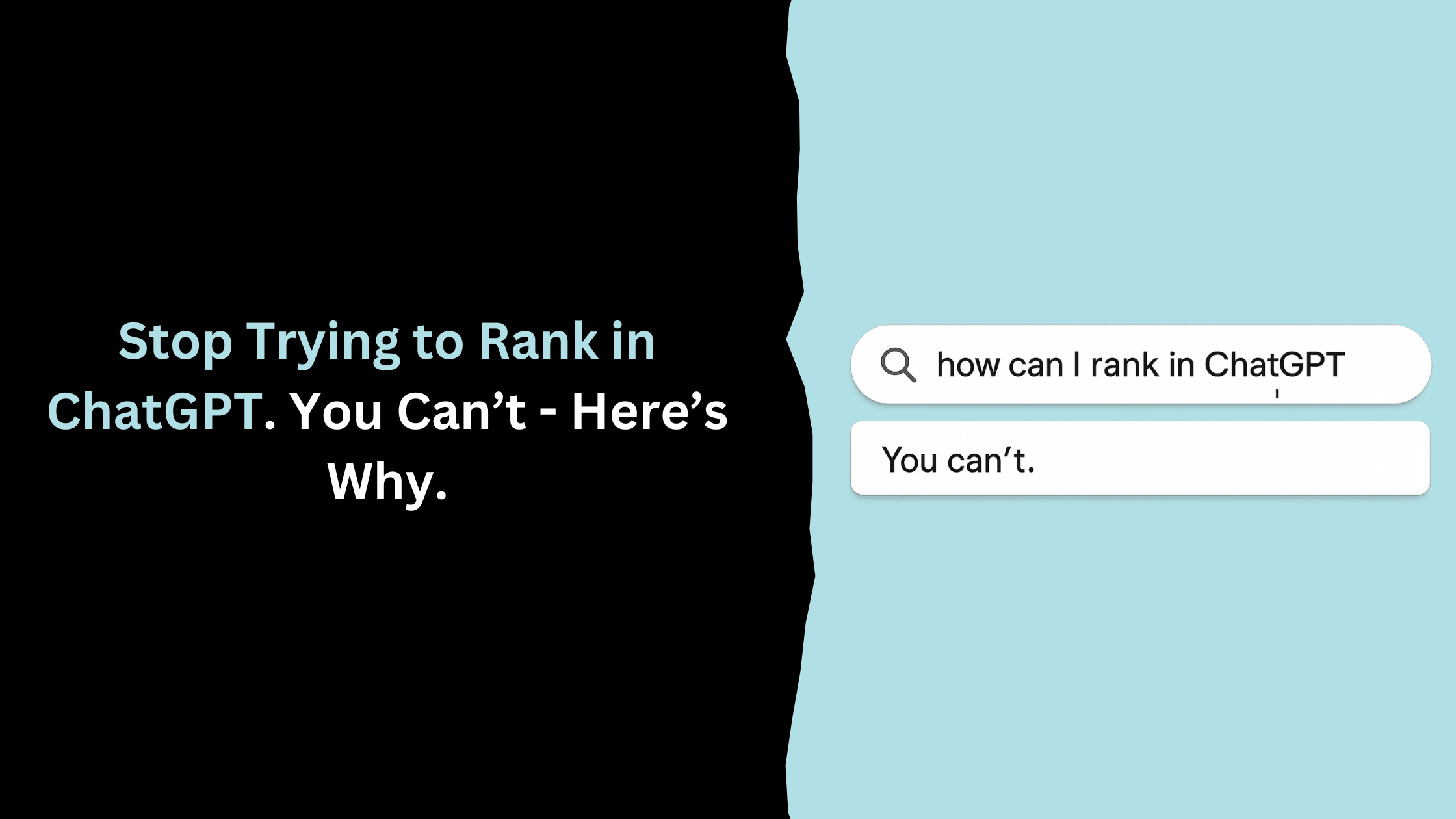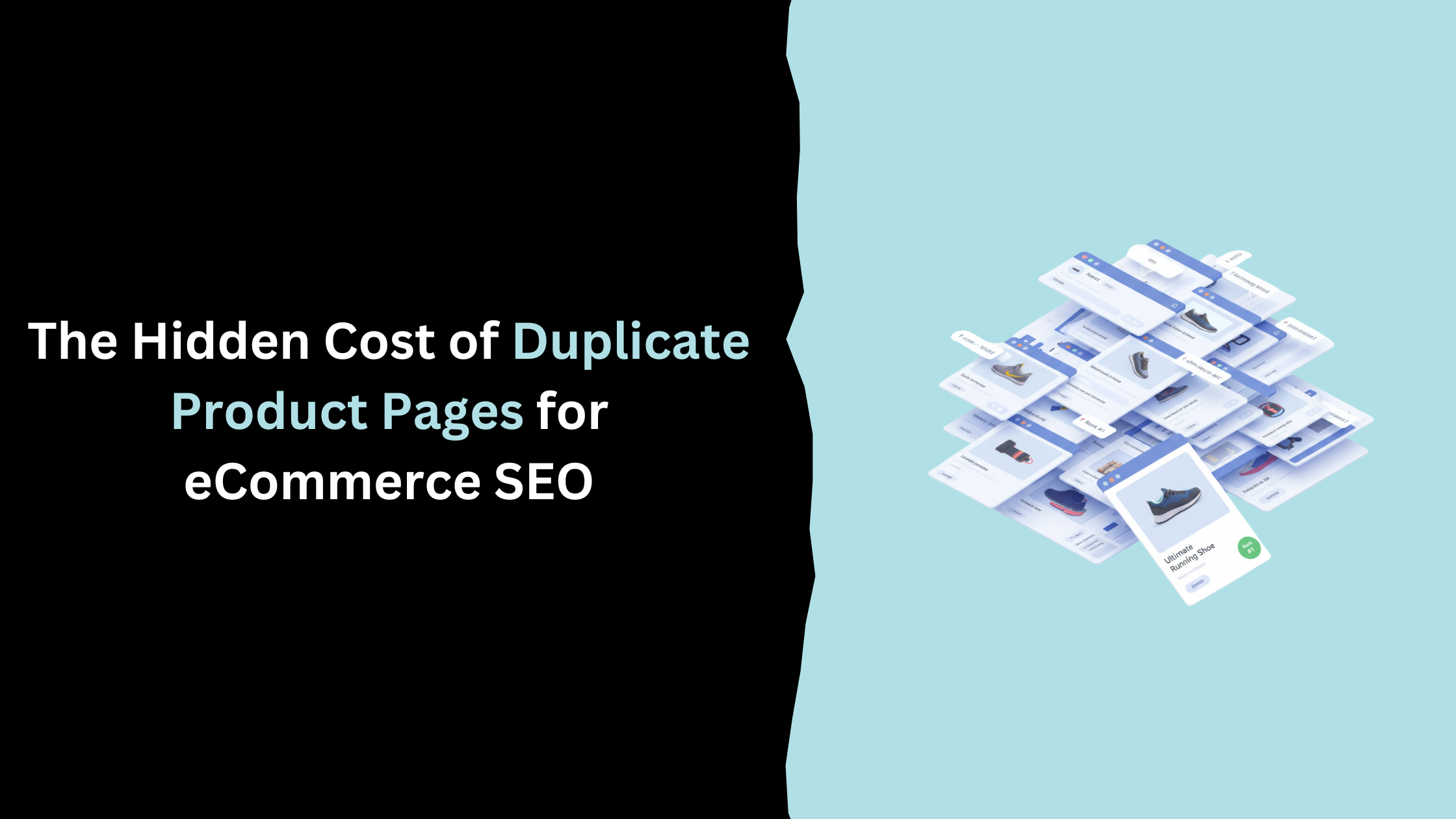Table of Contents
Marketers love a good ranking strategy. For years, SEO has been about figuring out what Google wants and giving it to them. But with large language models (LLMs) like ChatGPT becoming part of how people find information, the question is shifting from “How do I rank?” to “How do I get mentioned?”
And here’s the kicker: you can’t “rank” in ChatGPT because ChatGPT isn’t ranking anything.
Search Engines vs LLMs
Search engines like Google and Bing are information retrieval systems. They crawl the web, index content, and rank results based on signals like relevance, authority, and user intent.
LLMs don’t do that. They don’t “retrieve” results - they generate them.
When you ask ChatGPT something, it doesn’t scan a database of web pages to find the best answer. It predicts the next word in a sentence based on patterns it learned during training. The answer might include facts from the web, but it’s not ranking those facts. It’s creating a response that sounds right based on probability.
That’s why you can’t “optimise” for ChatGPT like you do for Google. There’s no meta title, no backlinks, and no structured data to help it decide you’re the best source.
So What Does Influence LLM Mentions?
Even though you can’t rank, visibility in LLM outputs isn’t random. Models are trained on a blend of public data, licensed content, and (sometimes) user interactions. That means your content can influence how models “learn” about topics, but not in a predictable or trackable way.
In practice, brand visibility in LLMs tends to come from:
- Being referenced or quoted often on reputable websites
- Having strong digital coverage across platforms
- Building enough online “weight” that your name appears in training data or retrieval systems that feed LLMs (like Bing or Perplexity)
So while you can’t optimise for a ranking position, you can still shape how likely it is that your brand gets mentioned, which is a subtle but important shift.
Search Engines Aren’t Really Search Engines Anymore
Here’s the fun twist: even search engines aren’t behaving like search engines these days.
Google’s results are increasingly blended with AI summaries, sponsored placements, and “zero-click” experiences. Half the time, users never even reach your site, and they just read the answer at the top of the page.
In other words, Google’s becoming more like ChatGPT, while ChatGPT’s becoming more like Google (thanks to web-browsing tools and links).
So while SEO isn’t dead, it’s evolving fast. The traditional idea of “ranking” is losing meaning because users aren’t always searching in the old sense. They’re asking, and expecting instant, conversational answers.
The Takeaway
You can’t “rank” in ChatGPT because it’s not sorting web pages, it’s generating text. And you can’t rely on traditional rankings in Google anymore because, well, Google’s not exactly doing that either.
The next phase of SEO isn’t about chasing positions. It’s about building visibility wherever decisions are being made, whether that’s a search result, an AI-generated summary, or a chatbot conversation.
Get in touch today
complete the form below for an informal chat about your business







.png)
